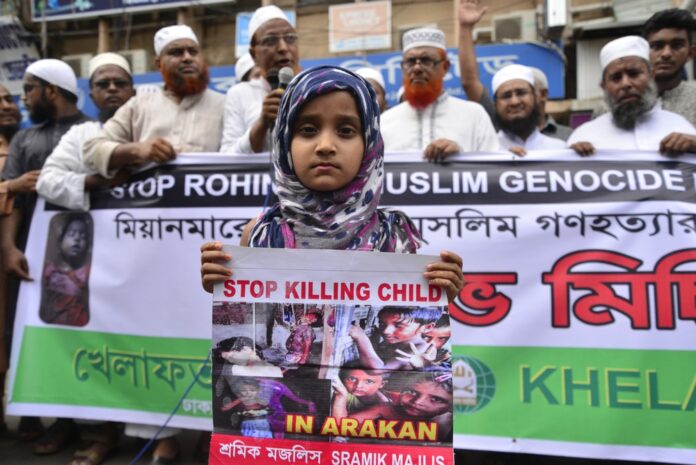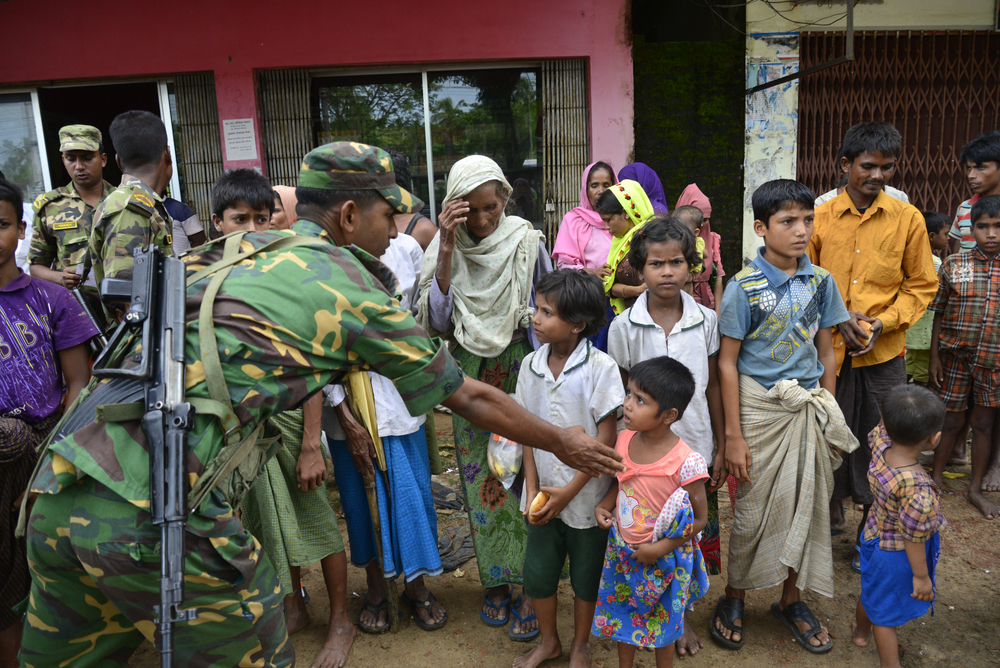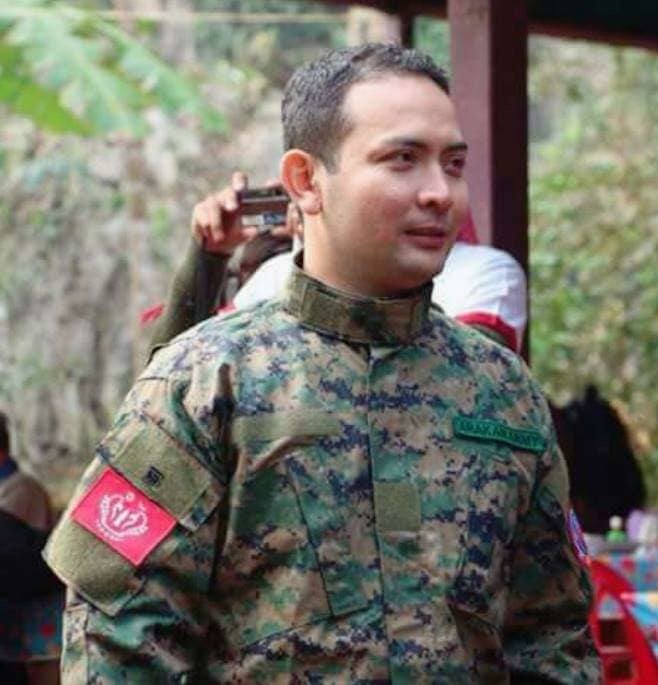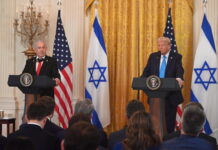
Huseyin Ali-Diakides, Campaigns Officer at the Islamic Human Rights Commission, highlights the vital context behind the recent slaughter of 200 Rohingya Muslims in Myanmar and how new military forces are continuing to oppress this forgotten ill-treated minority.
On August 6, 200 Rohingya, mostly women and children, were brutally killed in airstrikes by the Arakan Army whilst attempting to flee towards Bangladesh to escape their persecution.
Whilst this is only one example of various incidents taking place in the Myanmar state of Rakhine currently, it is important to learn and understand the evolving situation in which the Rohingya now find themselves in 2024.
Crucial context
Following the 2021 coup which saw the military overthrow the government headed by Aung San Suu Kyi, the exiled elements of the former regime formed a National Unity Government (NUG).
The NUG leads a militia alliance called the People’s Defence Force, but it is questionable how large this force is, and whether it is even active in large parts of the country.
There have also been various ethnic militias fighting against the military junta, but again these are believed to be very small.
Subscribe to our newsletter and stay updated on the latest news and updates from around the Muslim world!
The main resistance to the military has been done by the Three Brotherhood Alliance, which according to media reports is actually winning the war against the military in both the regions of Shan and Rakine, also known by its historic name Arakan.
The Three Brotherhood Alliance is made up of ethnic armed groups: the Arakan Army (AA), the Myanmar National Democratic Alliance Army (MNDAA), and the Ta’ang National Liberation Army (TNLA).
The AA has painted itself as an Arakanese nationalist group, which fights for the autonomy of the Arakan/Rakhine State. Perhaps surprisingly, the AA has also attempted to paint itself as a multi-ethnic army, which had miraculously managed to unite Rakhine Buddhists and Rohingya Muslims into one fighting force.
The AA has recorded many victories and captured important cities in both the Rakine and Shan states.
The NUG has spoken in support of the AA but although it does appear that they have fought side by side at times it remains unclear to what extent the two are connected.
Reports say that the AA is in fact fighting for an independent Arakan state, contradictory to the aims of the NUG, which aspires to keep Myanmar together and perhaps return democracy to the divided country.
Oppression of the Muslim Rohingya
The oppression of the Rohingya goes back decades, with them being denied both equal rights and even citizenship, under the false claim that they are foreign Bengalis who arrived to the region under the British Empire.

Despite evidence showing that they have been in Rakhine since the 12th Century, at least a century further back than the Rakhine people whom share the state, many massacres of Rohingya have taken place with the help of the military.
Including in 2012, during the Rakine State riots which saw sectarian tensions between Bhuddists and Muslims spill over into violence.
Rohingya’s protesting after Friday’s prayers in Maungdaw township saw more than a dozen residents killed after police started firing.
A state of emergency was declared in Rakhine, allowing the military to participate in the administration of the region. A time which saw Muslims of all ethnicities become heavily targeted.
But things really came to a head in 2017, with the start of the deadly Rohingya genocide.
Within a year, 25,000 Rohingya were killed and a further 1.1 million fled Myanmar completely. Many drowned at sea as they attempted to escape.
The Arakan Army’s double standards
The first signs that the Arakan Army’s claim that they supported equal rights for Rohingya was false came when their leader, Twan Mrat Naing, stated on March 26: “Nothing is wrong with calling Bengalis ‘Bengalis.’ They have been our neighbours, our friends and fellow citizens for centuries. Let’s be honest and embrace this reality to build a better future.”
Whilst many Rohingya have refused to take sides in the civil war, reports circulated inside Myanmar that the Rohingya who remained neutral were therefore not supporting the military.

The military also promoted this belief to create more tensions and inspire a split within the ranks of the multi-religious AA.
However, as the war began to worse for the junta, the military began to forcefully recruit Rohingya to fight for them at gunpoint, whilst claiming the Rohingya they press-ganged into fighting were actually doing so because they were anti-Rakhine.
Amid the tensions, things came to a head on May 17, 2024, when the AA took control of the majority Rohingya township of Buthiduang, and demanded that the Rohingya population vacate.
When the Rohingya refused, the AA responded by burning the town, killing hundreds of civilians, whilst forcing around 150,000 Rohingya from the town and surrounding areas.
According to some reports entire families were killed, and a group of Rohingya elders were also slaughtered when attempting to negotiate with AA leaders in the area.
On May 21, the NUG released a statement regarding these attacks, however, carefully worded it to make it sound like the military had committed the crimes and that “Rakhine, Rohingya and Hindu civilians” were all suffering the same.
It has become clear that despite attempts by the NUG and the AA to appear as if they have learnt from the past and view the Rohingya as rightful citizens of Myanmar, they are unable to overcome the racism that was prevalent in both the NUG when in power, and the Rakhine population before the 2021 coup.
On June 18, this issue was brought up by the UN human rights chief Volker Turk during a session of the Human Rights Council.
It has, however, been largely ignored by many countries, including Muslim-majority ASEAN countries, who maintain ties with Myanmar.






















